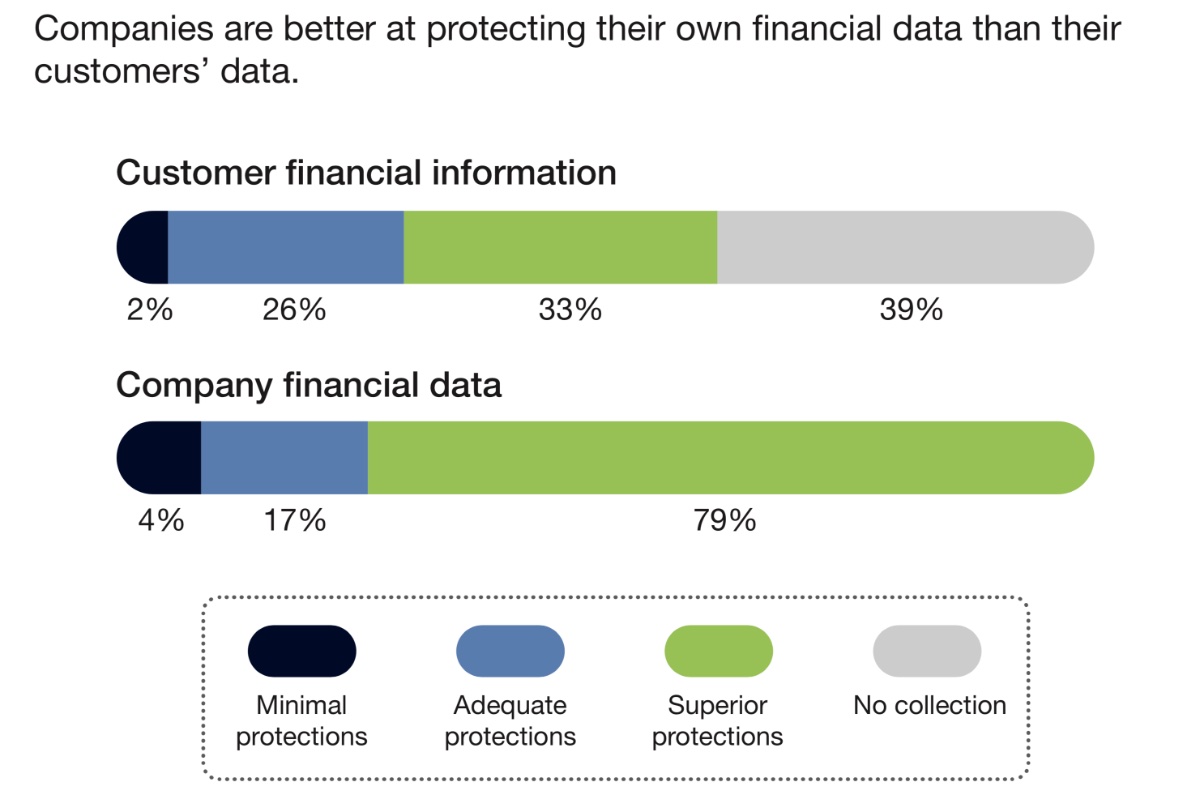High-profile security breaches and changing regulations have raised consumer concerns and pressured businesses, establishing 2018 as a landmark year in the data economy. NTT DATA, a recognized leader in global technology services, today released original research from Oxford Economics, titled “The Future of Data: Adjusting to an opt-in economy,” that examines these trends and sentiments from consumers and businesses.
The study highlights several challenges faced by businesses as they adjust to changing regulations and consumer uncertainty, including a resounding lack of trust — just 8% of consumers strongly agree that they trust businesses to keep their personal information safe. The research also shows roughly 80% of businesses have superior or strong protections in place for their own operational and financial data, but they are less secure with consumers’ personal (42%) and financial (33%) information.
“The global regulatory environment continues to tighten and public perception of data sharing becomes more negative. We’ve reached a tipping point in 2018 where both businesses and consumers are scrambling to prepare for the changes that lie ahead,” says Eric Clark, Chief Digital Officer, NTT DATA Services. “Following the Facebook and Cambridge Analytica revelation, the GDPR implementation and data breaches in the news practically every week, 2018 has been a watershed year that will force companies to allow consumers to take ownership of their data and choose where and how it is shared.”
The companies surveyed that are more advanced in their data use and management see clear benefits – they are far more likely to have experienced solid revenue growth (above 5%) over the past three years (79% vs. 38%). These data leaders also have a better understanding of regulations they must follow in jurisdictions around the world (61% understand this “extremely well” vs. 27% of others), and are more likely to understand that consumers are concerned about sharing data (36% vs. 21%).
As businesses and consumers grapple with ownership of user data in the wake of frequent security breaches, regulatory tightening, and questions about how data is used, 60% of consumers reported feeling uncomfortable about businesses sharing their personal data with other companies. Additional findings include:
° 79% of consumers say they would stop doing business with a company that misuses their data.
° Just 41% of consumers believe changes resulting from big data and analytics are good for society, compared with nearly 90% of business executives.
° Only 22% are confident that the companies they share data with are protecting their personal information, yet nearly 70% still willingly share their personal information and take few steps to protect it
While consumers are still learning how best to manage their data, nearly 70% of companies have developed an overarching strategy for data use and management. However, Oxford Economics says far fewer have taken appropriate steps toward successful implementation, including setting clear policies for data use (51%), retraining employees for data analysis (46%), or sharing data across the business (25%). In addition:
° 93% of executives surveyed indicated their company has experienced a breach in the past three years.
° Only 8% of executives said their company is effective at preparing for upcoming regulations.
° Businesses are currently using only 62%, on average, of data collected.
“Most businesses need to refine their data strategies to incorporate the consumer point-of-view,” says Edward Cone, technology practice lead at Oxford Economics. “Leadership alignment and effective training will be critical in this opt-in era, to ensure data security and customer satisfaction and also to deliver the desired business outcomes that lead to growth.”
The research, conducted in partnership with NTT DATA and Oxford Economics, surveyed 500 executives and 5,000 consumers in 15 countries during the first half of 2018.

